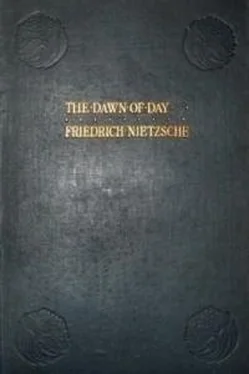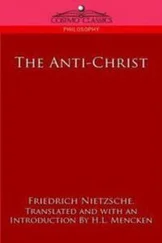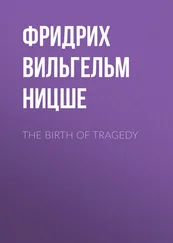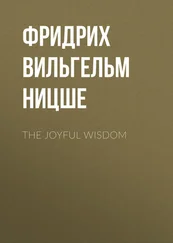Now, speaking frankly, this suspicion is quite erroneous, and whoever forms it knows nothing of what agitates and determines the free spirit: how little, to him, does the changing of an opinion seem contemptible per se ! On the contrary, how highly he prizes the ability to change an opinion as a rare and valuable distinction, especially if he can retain it far into old age! And his pride (not his pusillanimity) even reaches so high as to be able to pluck the fruits of the spernere se sperni and the spernere se ipsum : without his being troubled by the sensation of fear of vain and easy–going men. Furthermore, the doctrine of the innocence of all opinions appears to him to be as certain as the doctrine of the innocence of all actions: how could he act as judge and hangman before the apostate of intellectual liberty! On the contrary, the sight of such a person would disgust him as much as the sight of a nauseous illness disgusts the physician: the physical repulsion caused by everything spongy, soft, and suppurating momentarily overcomes reason and the desire to help. Hence our goodwill is overcome by the conception of the monstrous dishonesty which must have gained the upper hand in the apostate from the free spirit: by the conception of a general gnawing which is eating its way down even to the framework of the character.
57.
OTHER FEARS, OTHER SAFETIES.—Christianity overspread life with a new and unlimited insecurity , thereby creating new safeties, enjoyments and recreations, and new valuations of all things. Our own century denies the existence of this insecurity, and does so with a good conscience, yet it clings to the old habit of Christian certainties, enjoyments, recreations, and valuations!—even in its noblest arts and philosophies. How feeble and worn out must all this now seem, how imperfect and clumsy, how arbitrarily fanatical, and, above all, how uncertain: now that its horrible contrast has been taken away—the ever–present fear of the Christian for his eternal salvation!
58.
CHRISTIANITY AND THE EMOTIONS.—In Christianity we may see a great popular protest against philosophy: the reasoning of the sages of antiquity had withdrawn men from the influence of the emotions, but Christianity would fain give men their emotions back again. With this aim in view, it denies any moral value to virtue such as philosophers understood it—as a victory of the reason over the passions—generally condemns every kind of goodness, and calls upon the passions to manifest themselves in their full power and glory: as love of God, fear of God, fanatic belief in God, blind hope in God.
59.
ERROR AS A CORDIAL.—Let people say what they will, it is nevertheless certain that it was the aim of Christianity to deliver mankind from the yoke of moral engagements by indicating what it believed to be the shortest way to perfection : exactly in the same manner as a few philosophers thought they could dispense with tedious and laborious dialectics, and the collection of strictly–proved facts, and point out a royal road to truth. It was an error in both cases, but nevertheless a great cordial for those who were worn out and despairing in the wilderness.
60.
ALL SPIRIT FINALLY BECOMES VISIBLE.—Christianity has assimilated the entire spirituality of an incalculable number of men who were by nature submissive, all those enthusiasts of humiliation and reverence, both refined and coarse. It has in this way freed itself from its own original rustic coarseness—of which we are vividly reminded when we look at the oldest image of St. Peter the Apostle—and has become a very intellectual religion, with thousands of wrinkles, arrière–pensées , and masks on its face. It has made European humanity more clever, and not only cunning from a theological standpoint. By the spirit which it has thus given to European humanity—in conjunction with the power of abnegation, and very often in conjunction with the profound conviction and loyalty of that abnegation—it has perhaps chiselled and shaped the most subtle individualities which have ever existed in human society: the individualities of the higher ranks of the Catholic clergy, especially when these priests have sprung from a noble family, and have brought to their work, from the very beginning, the innate grace of gesture, the dominating glance of the eye, and beautiful hands and feet. Here the human face acquires that spiritualisation brought about by the continual ebb and flow of two kinds of happiness (the feeling of power and the feeling of submission) after a carefully–planned manner of living has conquered the beast in man. Here an activity, which consists in blessing, forgiving sins, and representing the Almighty, ever keeps alive in the soul, and even in the body , the consciousness of a supreme mission; here we find that noble contempt concerning the perishable nature of the body, of well–being, and of happiness, peculiar to born soldiers: their pride lies in obedience, a distinctly aristocratic trait; their excuse and their idealism arise from the enormous impossibility of their task. The surpassing beauty and subtleties of these princes of the Church have always proved to the people the truth of the Church; a momentary brutalisation of the clergy (such as came about in Luther’s time) always tended to encourage the contrary belief. And would it be maintained that this result of beauty and human subtlety, shown in harmony of figure, intellect, and task, would come to an end with religions? and that nothing higher could be obtained, or even conceived?
61.
THE NEEDFUL SACRIFICE.—Those earnest, able, and just men of profound feelings, who are still Christians at heart, owe it to themselves to make one attempt to live for a certain space of time without Christianity! they owe it to their faith that they should thus for once take up their abode “in the wilderness”—if for no other reason than that of being able to pronounce on the question as to whether Christianity is needful. So far, however, they have confined themselves to their own narrow domain and insulted every one who happened to be outside of it: yea, they even become highly irritated when it is suggested to them that beyond this little domain of theirs lies the great world, and that Christianity is, after all, only a corner of it! No; your evidence on the question will be valueless until you have lived year after year without Christianity, and with the inmost desire to continue to exist without it: until, indeed, you have withdrawn far, far away from it. It is not when your nostalgia urges you back again, but when your judgment, based on a strict comparison, drives you back, that your homecoming has any significance!—Men of coming generations will deal in this manner with all the valuations of the past; they must be voluntarily lived over again, together with their contraries, in order that such men may finally acquire the right of shifting them.
62.
ON THE ORIGIN OF RELIGIONS.—How can any one regard his own opinion of things as a revelation? This is the problem of the formation of religions: there has always been some man in whom this phenomenon was possible. A postulate is that such a man already believed in revelations. Suddenly, however, a new idea occurs to him one day, his idea; and the entire blessedness of a great personal hypothesis, which embraces all existence and the whole world, penetrates with such force into his conscience that he dare not think himself the creator of such blessedness, and he therefore attributes to his God the cause of this new idea and likewise the cause of the cause, believing it to be the revelation of his God. How could a man be the author of so great a happiness? ask his pessimistic doubts. But other levers are secretly at work: an opinion may be strengthened by one’s self if it be considered as a revelation; and in this way all its hypothetic nature is removed; the matter is set beyond criticism and even beyond doubt: it is sanctified. It is true that, in this way, a man lowers himself to playing the rôle of “mouthpiece,” but his thought will end by being victorious as a divine thought—the feeling of finally gaining the victory conquers the feeling of degradation. There is also another feeling in the background: if a man raises his products above himself, and thus apparently detracts from his own worth, there nevertheless remains a kind of joyfulness, paternal love, and paternal pride, which compensates man—more than compensates man—for everything.
Читать дальше











